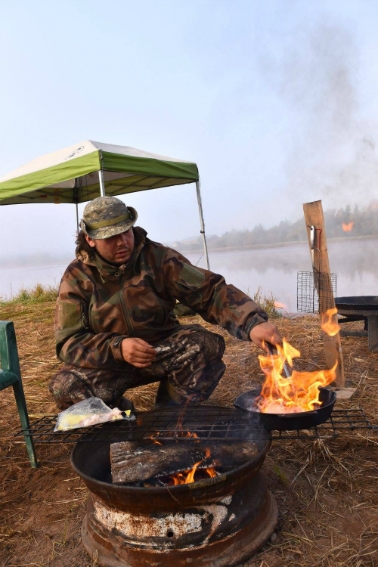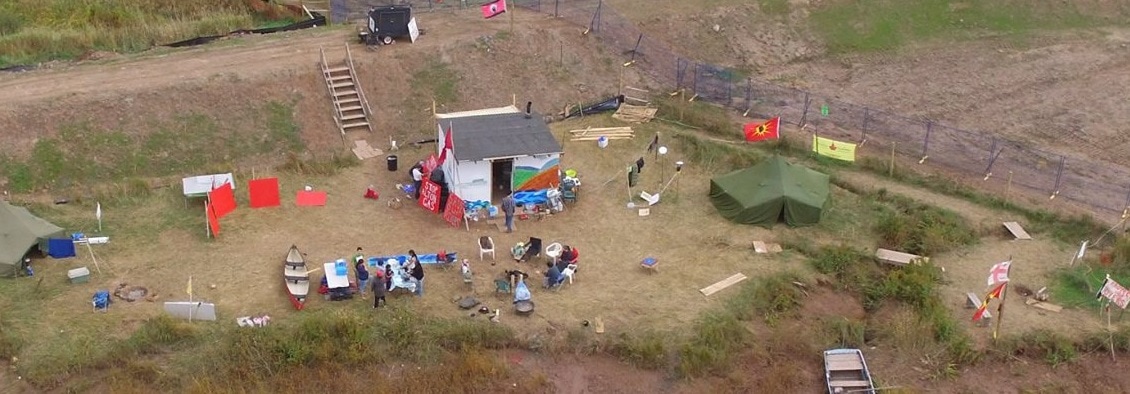KJIPUKTUK (Halifax) – Court documents cast serious doubt on Premier Stephen McNeil’s repeated claim that he was unaware the government’s lawyer was going to fundamentally challenge in court the province’s duty to consult with Mi’kmaq people.

The Premier has expressed shock at the arguments presented in court and strenuously denied that Justice Department lawyer Alex Cameron was acting on his government’s instruction.
Telling APTN reporter Trina Roache that he understood the angry reaction from Mi’kmaq, McNeil said, “I’m not happy … that position was put forward in the court. Disappointed would be a huge understatement. To say that I was furious would probably be more accurate. My hope is that the chiefs and the Mi’kmaq community will understand it is not a reflection of who I am, and who our government is.”
Justice Minister Diana Whalen, with direct ministerial responsibility for the court case and assigning lawyer Cameron, told the Canadian Press that she did not sign off on the brief that had just been argued in court. “This is not what we as a government . . . would have wanted to be the major argument.”
Premier McNeil is also the Minister for Aboriginal Affairs, with direct responsibility for relations with Mi’kmaq people. The staff of Aboriginal Affairs are just down the hall from the Premier’s own offices. The court case by Sipekne’katik First Nation challenges the government granting of permits for the Alton Gas project, and revolves around whether the duty to consult had been satisfied.
McNeil’s Aboriginal Affairs staff were very closely involved in all of the 2015 discussions bearing on whether Sipekne’katik First Nation was being adequately consulted about the Alton Gas project. And when the granting of that company’s permits was announced at a January press conference, those same staff were on hand to justify the McNeil government’s assertion that Sipekne’katik had been consulted.
Lawyer assigned to case considered controversial all along
Sipekne’katik filed in April its court action disputing whether the duty to consult had been discharged, and Department of Justice lawyer Alex Cameron was assigned to defend the government. In late 2009 the Assembly of Nova Scotia Chiefs sent the Nova Scotia government an unusual letter, requesting that “Justice Lawyer, Alex M. Cameron no longer provide advice to or representation of Nova Scotia in respect of all Mi’kmaq issues.”
Cameron has been a controversial figure since the publication of his book challenging the Supreme Court’s landmark Marshall decision, and other fundamentals that set out what have become the “duty to consult” with aboriginal peoples as we know it today. Cameron has continued to publish articles and speak publicly on these issues, but until this year the Assembly of Chief’s request that he not be involved in cases that engage Mi’kmaq rights had been observed.
How likely is it that Cameron’s assignment to the Sipekne’katik court was a coincidence, that he simply drew that straw? And the Premier’s Aboriginal Affairs staff who had been closely engaged for more than a year with Sipekne’katik over demands for consultation on the Alton Gas project- how likely is it that staff had no idea Alex Cameron had been assigned to defend in court the government’s record on that consultation?
Considering that close and continuous engagement, it seems more likely that the Premier’s staff actually suggested the case be assigned to Alex Cameron.
Alex Cameron’s first court submission in June
In his initial court submission in June the government’s lawyer in the Sipekne’katik case contradicted 20 years of court decisions and directly set out questioning whether the Province of Nova Scotia had any obligation to consult with Mi’kmaq people over projects like Alton Gas Storage. This argument did not blind side the Premier in November- it was presented in court in June.
The November court submission to which the Premier has reacted with such shock ‘boilerplates’ what Cameron already presented to court in June. While there are no substantive changes from the argument challenging the duty to consult presented in June, the language used in the November submission is new and more extreme.
It is in the November court submission that Alex Cameron makes the argument that the duty to consult is only with “unconquered peoples,” and that the Mi’kmaq people, or at least the people of Sipekne’katik district, are in fact a conquered people.
The Premier has said that Alex Cameron went “too far.” But this raises the question of what exactly went too far for Stephen McNeil. And how much of Cameron’s argument may this government for many months have known about, if it not set it in motion itself?
Alex Cameron has been challenging in court whether there is a duty to consult since June- not November- when the Premier claims to have first found out. And it would have been be an entirely uncharacteristic circumstance for the Premier’s staff to have not been at least aware that Alex Cameron, with his long established radical legal arguments, had been assigned to the Sipekne’katik court case and was likely to make such an argument.
What went “too far” for premier McNeil?
Cameron’s court submission that used the term “conquered people” was leaked to the NDP and media just days before the arguments were to be orally presented in court. That much did indeed blindside the Premier and his government.
Were it those words that went “too far” for the Premier? Did those words injudiciously used by Alex Cameron make it impossible for the government to own the substantive challenge to Mi’kmaq rights that Cameron had been mounting for many months?
At any rate, the leak of the brief with the conquered people language created an immediate firestorm of protest from Mi’kmaq.
“I’m not sure what history he has been taught,” said Millbrook Chief Bob Gloade in a statement. “As conquered people, he suggests that we are owed less than good faith, less than the honour the Crown is bound by in its conduct with aboriginal peoples. How is it possible that the province can come to the table to work with us, in the spirit of cooperation and reconciliation, yet still allow arguments about ‘conquered peoples,’ without sovereignty, to be made on its behalf, in a court of law in 2016? How does this further our common interests in reconciliation?”
Premier McNeil may have to come up with a better answer than that he didn’t know.
If you can, please support the Nova Scotia Advocate so that it can continue to cover issues such as poverty, racism, exclusion, workers’ rights and the environment in Nova Scotia.




